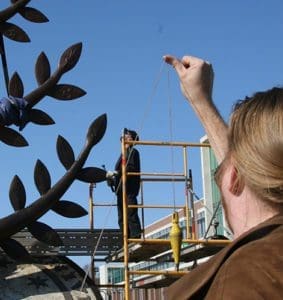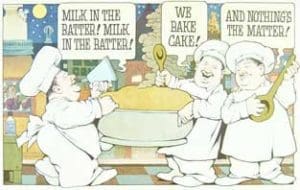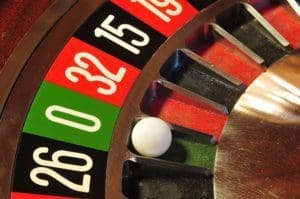Ideas
The Economics of Creation- part 1
 Money and business are often scary, confusing things, that leave creatives, and people with powerful ideas feeling powerless.
Money and business are often scary, confusing things, that leave creatives, and people with powerful ideas feeling powerless.
To understand that world, you first need to understand your own place within it.
Ford had plenty of bad ideas in his time, but he was unusually good at long term, holistic economic thinking– a strategy that recognized that any business is part of a larger ecosystem.
The Michigan Supreme Court ruled against Ford in that case and established the principle of shareholder primacy– the idea that among all the many people who contribute to make any business function; customers, managers, workers– the only ones that really matter are the people who put up the money.
It’s an idea most of us accept without question today– that investors need to be protected above all other concerns, which is a shame, because it’s an incredibly stupid theory, for everyone involved.
That balance between profit and other factors can work in many ways, but the one way it absolutely *never* works best is to take all your food now, and save nothing for seed, to work your workers til they drop today, and have no-one left tomorrow. What never works best is to prioritize profit above all other factors.
As humans, we don’t ultimately want or need profits.
We want human things, that are rare, and harder to find.
Profits are just a way for us to eventually get to those things.
In our modern economy, these kinds of ideas only “work” because we’ve split all enterprise into multiple parts, so it’s possible to just be the guy who takes the food and eats it, and figuring out how to re-plant next year is someone else’s problem. It’s possible to just be the guy who rests and enjoys the fruits of labor, finding the energy to work more tomorrow is someone else’s problem.
It’s possible in a world like that to just look at the guy taking profits, playing with hoarded resources, and refusing to deal with the problems of where those resources come from tomorrow, and think he must be pretty smart and powerful.
That would be wrong, he is in fact *lucky*, and only in some ways, and only in the short term, but it’s easy to think that way.
Money is not unique.
There are millions and millions of people with money out there, and none of them has money that is any better or worse than anyone else’s, except in their own mind. Money is a kind of power, but it’s like water. You need a source of it to survive. In a world like Ford was advocating for, a place like Michigan, water is everywhere, and always moving. In a poor, desert world like the Dodge’s and their successors today wanted, the world we got, water is horded by a few, and it’s possible for people to hold power over each other by having a cup of water, something that would be laughable in Michigan.
Money is a placeholder. No business person creates or destroys it. No business person is master of anything more than what they personally have in their hand, usually, not even in control of that much.
Money is a placeholder for things that people actually need and value, it is not valuable itself, and any person with money only has the ability to get other things that people value. Scarce things, special things, necessary things for survival. That’s it. That is their only power. They can not *make* food, or antiquities, or special, rare things. They can only ask other people to do it for them.
If one person with money doesn’t like you, you can always find others.
Here’s why this matters:
As a creative, as an entrepreneur, you have the power to make special, rare, valuable things out of thin air.
You are the rare thing. You are the valuable commodity. You are the thing of value that money is just an empty symbol for. You give meaning, both to the money itself, and to the *lives* of the people who hold it. You create meaning that they absolutely *can not* create or acquire without you. They need you. Not the other way around.
Act like it.
Be worthy of it.
Into the Kitchen

Illustration by Maurice Sendak, 1970
When I was a kid, and obsessed with reading, no-one was as magical as Maurice Sendak, with Where the Wild Things Are and In The Night Kitchen. I read other books more often, but reserved a sort of reverence for Sendak’s surreal stories of a childhood full of secret doors and ways into hidden worlds. The others were great stories, but Sendak was mythology. There were whispers there of deeper truths, mysteries and better worlds to be found.
In the Night Kitchen is the story of Mickey, who one night falls out of his clothes and into the night kitchen where giant bakers are making batter for the Morning Cake. For me, as a little kid, it was like getting a glimpse into the secret workings of the universe. The kitchen was a mysterious, loud place, that only adults had control over, but also where all the food came from. Recognizing that most children would see it that way, in a way no adult would, is Sendak’s genius of course, and what gives his stories their mythic weight.
Letting the art do its job
I’ve been watching the saga of the indie survival game “Rust” for the past few weeks now with some interest. Like a lot of indie games, it’s in “early access”, and has been for several years now. This just means that the developers have been selling it and letting people play while they continue to work on it and add features. Most recently, the developers decided to add black people and women to a game that had previously been populated entirely by identical bald white guys.
The rub being: you don’t get to decide which race or gender you are in the game. The game decides that for you randomly, and permanently. This has made a few people upset.
The Blank Slate
 I’m shopping for a new tablet to use with digital media today.
I’m shopping for a new tablet to use with digital media today.
Technology has never made as many things as easy as they are right now. While it’s a popular idea to say that smart phones create social disconnection, or that porn creates sexual dysfunction, it’s a silly idea too. Disconnection and furtive sex have always been part of being human. The behaviors aren’t new at all, but the magnitude is. You could bury your face in a book at the dinner table 100 years ago, or secretly look at erotic etchings while your husband was away in town, but the book would eventually end, and there were only two etchings, and neither one was very good. Neither one was a crafted, never-ending flow of sex promising to show you (but never let you touch or possess) everything you want. Once, we chewed coca leaves for a little boost of energy. Now we’ve got pure chemical cocaine, which is tougher to turn away from, or get self-awareness on.
Still, as much as that disturbs me at times, I see it as each person’s individual choice to keep using or not… sort of.
Love your work
 People will tell you they love your work, if you put it out into the world. This made me feel great about myself, until I noticed that people will say they love anyone else’s work too. Even really terrible, unlovable work. It’s easy to find people who will tell you yoru work is great. It’s much harder to find people who love your work enough to actually purchase it, or support you in making it, which I think, really, is what we’re hoping they’re saying when they say they love what we do- that they’ll help.
People will tell you they love your work, if you put it out into the world. This made me feel great about myself, until I noticed that people will say they love anyone else’s work too. Even really terrible, unlovable work. It’s easy to find people who will tell you yoru work is great. It’s much harder to find people who love your work enough to actually purchase it, or support you in making it, which I think, really, is what we’re hoping they’re saying when they say they love what we do- that they’ll help.
If they felt love, they’d help, but chances are, they don’t love your work, even if they say they do. It’s more complicated than that.
Being any kind of creative is a fairly pitiless path to choose for yourself. You will probably not be taken care of emotionally, save for by a very precious few, and probably not rewarded financially for a long time. You should know this going in.
Good Money After Bad
 A few years ago, I went to see “The Avengers” with a girl I was seeing at the time. “I guess I liked it.” she said later on the phone, “I just couldn’t stop thinking about what a waste of money it all was. Like that’s MILLIONS of dollars that could have been spent to help a lot of people. It just seemed a little silly.”.
A few years ago, I went to see “The Avengers” with a girl I was seeing at the time. “I guess I liked it.” she said later on the phone, “I just couldn’t stop thinking about what a waste of money it all was. Like that’s MILLIONS of dollars that could have been spent to help a lot of people. It just seemed a little silly.”.
Last year, I was commissioned to design my first big public fountain sculpture “The Gathering Tree” for Western Michigan University in Kalamazoo. All told, the budget ran to about $650,000. Again, as soon as that number came out, people began making blog posts and commenting online about what a waste of money that was, and how many other, more deserving projects could have used that money.
It’s a popular idea these days, that art and entertainment are frivolous somehow, and not worth the money.
Continue reading
The Odds

Photographer: Ralf Roletshek
used under creative commons
In the business of being an artist, let’s say that creative success is just an odds game, like playing roulette, and you need to spin a red 9 to win. Let’s say that, because it’s true.
There are two differences:
1. The roulette wheel will change size depending how good you are. If you are terrible at your craft, the wheel will have thousands of numbers on it. You might still hit nine, but probably not. If you’re really good, it just has one through ten. If you’re amazing, it’s just red or black.
2. You don’t actually have to pay anything when you lose your bet, but you still collect when you win. This is amazing. Sure, you will have wasted the time it took to play, and people might look at you funny when you lose, but there is no actual loss- just an emotional one. You can choose to toughen up and play again.
Continue reading
